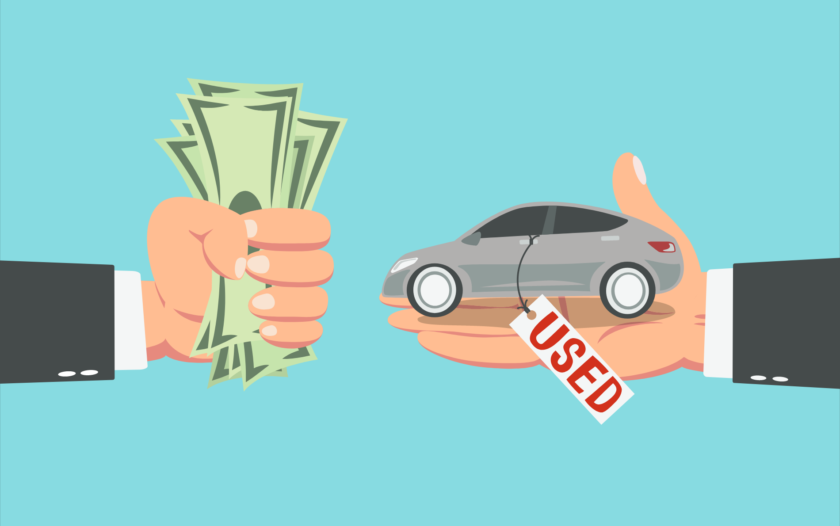Reasons for Getting a Personal Loan for a Used Car
About Caitlyn
Caitlyn is a freelance writer from the Cincinnati area with clients ranging from digital marketing agencies, insurance/finance companies, and healthcare organizations to travel and technology blogs. She loves reading, traveling, and camping—and hanging with her dogs Coco and Hamilton.
Read full bio
At a Glance
Most of us don’t have the cash on hand to purchase a vehicle outright. But if you’re buying a used car, especially from an individual, they likely want the cash up front before you can drive off with your new-to-you ride. In these cases, and some others, you may want to consider getting a personal loan for a used car instead of an auto loan.
In this article, you’ll learn:
Can you use a personal loan to buy a car?
Personal loan funds can typically be used to buy a new or used vehicle, though some lenders have their own restrictions on what personal loans can be used for, so make sure you’re able to use them to purchase a car.
However, whether a personal loan or an auto loan is better depends on factors like the type of car you want, whether you want to be a cash buyer, and your creditworthiness, because personal loans typically have higher interest rates depending on your credit score and the lender. It also depends on where you’re buying the vehicle.
Compare: Best Personal Loans to Buy a Car
When should you get a personal loan for a used car?
1. Your credit is not enough for an auto loan
If you don’t have a great credit score or credit history, getting approved for an auto loan may be difficult. Even if you do qualify, it will likely be very expensive due to high interest rates. Shopping for a personal loan will likely get you a lower interest rate and potentially better terms, so you may save money.
2. Conventional financing is not available
Sometimes, if the vehicle you’re buying is of a certain age, you may not be able to secure conventional auto financing. For example, many banks and lenders won’t offer loans for vehicles more than 10 years old, or with more than 100,000 miles. In this case, a personal loan would be a good option to help you make the purchase.
3. When a personal loan is cheaper than an auto loan
Unsecured personal loan interest rates are usually higher than auto loans, especially if you have great credit. However, you may also qualify for a competitive offer with a personal loan, making it a better choice over an auto loan.
4. You’re buying a vehicle from an individual
If you’re buying a vehicle from another individual, they will typically want cash and in most cases, they will want it immediately. This may be easier to procure with personal loan funds.
Pros and cons of getting a personal loan to buy used cars
| Pros | Cons |
|---|---|
|
|
|
|
|
|
|
|
|
|
|
|
|
Personal loan vs. auto loan
| Personal Loan | Auto Loan | |
|---|---|---|
| Collateral | Typically unsecured. | Secured, with the vehicle itself serving as collateral. |
| Loan purpose | Can be used for just about anything, including a down payment, cash purchase, repairs, upgrades, or more. | Must be used only to purchase the vehicle. |
| Loan term | Typically one to seven years, though could be 10 or more. | Typically two to five years, though six and seven year terms are also popular. |
| Down payment | No down payment required. | Some down payment is typically required. |
| Receiving funds | Get funds deposited up front in a lump sum in your bank account. | You do not get access to the funds; instead, your payments go directly to the lender. |
Learn more: Personal Loan Vs Auto Loan
FAQs
According to Experian data, drivers finance used cars at a higher rate than new cars (even though almost all new cars are financed). It’s generally easier to finance a new car vs. a used car, but financing a used car may mean lower monthly payments.
The average auto loan rate is 10.26% for used cars, but it depends on factors like your credit score and history, income, debt-to-income ratio, and others. Shop around to find the best deal for you.
You can consolidate your car and personal loans if you qualify for a larger loan. You can also get a personal loan and car loan separately, but it could be a red flag to lenders if you’re applying for multiple types of financing and taking on significant debt at one time. This may mean they won’t approve you for a loan.
You’ll often need a credit score of at least 600 to qualify for a traditional auto loan, though technically there is no official minimum credit score required to apply for an auto loan. Remember, the lower your score, the higher the interest rate you’ll have. For a personal loan, lenders prefer borrowers to have a score of at least 660 and above, though some lenders may accept lower scores at higher rates.









